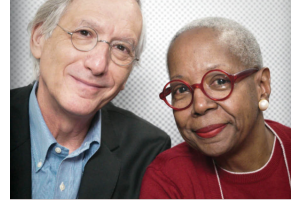
The Wall Street Journal on Grüner Veltliner. "Grüner Veltliner’s food-friendly nature has been a point in its favor among wine professionals since the first bottles began arriving in the U.S. in the mid-1990s."
Eater pairs wine with spring vegetables. "Giampiero Bea, a well-known vintner based in Umbria, has been thoroughly encouraging the Monastero Suore Cistercensi (trappist nuns just north of Rome in Lazio) to produce their phenomenal wines utilizing the local white varieties of trebbiano, verdicchio, and malvasia."
Bloomberg says you are drinking your white wine wrong. "Many of these age-worthy whites come from cooler climates such as the Mosel region of Germany—where primarily Riesling grapes are grown—and France’s Loire Valley."
The Chicago Tribune on Cubs manager Joe Maddon and is enjoyment of wine. "Maddon said that he had curtailed his consumption but did enjoy a glass of Dancing Hare, which is produced in the Napa Valley."
The San Francisco Chronicle on climate change and wine. "No surprise there. Many of Europe’s most celebrated wine regions, like Burgundy, are typically cool and wet, and their vineyards can struggle to reach optimal maturity. A warmer year, correlated with an earlier harvest, signals a greater likelihood that the grapes will ripen fully."
Jamie Goode on why wine writers are an endangered species. "Wine writing is very much alive. But professional wine writers, as we know them, are an endangered species, potentially heading for extinction. And this is all because of UGC."
Punch calls aligoté the Bernie Sanders of wine. "Like many underdogs, aligoté is currently having a moment, recast in a trash-glamour sort of way. At a time when Burgundy has become a totem for the rich, aligoté stands out as its populist wing—the sort of Bernie Sanders of Burgundian varieties."
Eric Asimov's New York Times wine school regroups on Pomerol and introduces Austrian Riesling. "Despite the tenaciously held stereotype of riesling as sweet, Austrian rieslings are almost always dry. They tend to be fuller-bodied than German rieslings but are often steelier and more lively than rieslings from Alsace."














